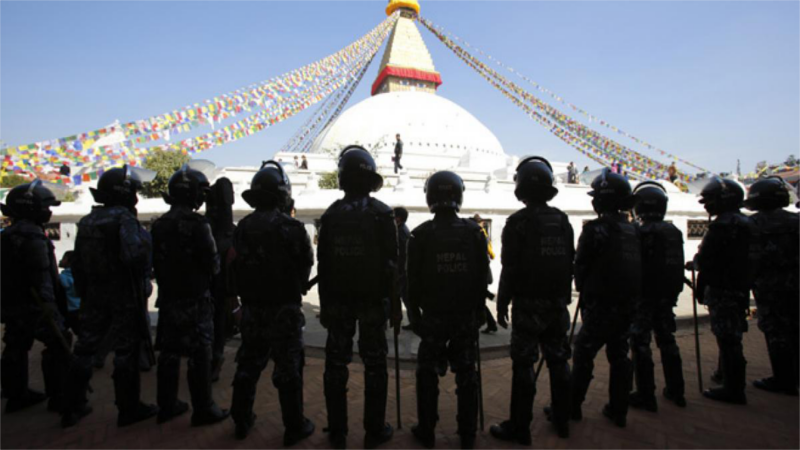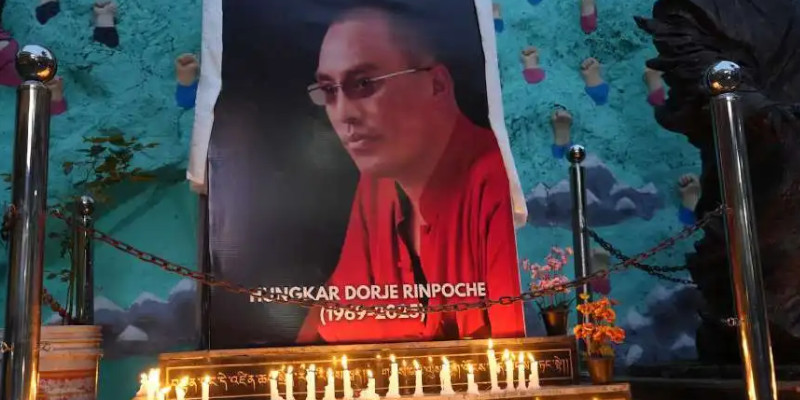Over the past more than five decades, Tibetans risking their lives, tracked across the himalayas from Tibet in search of a refuge from the Chinese invasion inside Tibet. Nepal has been a very important juncture in this escape as there were Tibetan camps set up by the Central Tibetan Administration in exile as well as international human rights organisations to extend support to the Tibetans fleeing from the communist invasion via Nepal. However, in the recent past few years, Chinese political influence over Nepal has been growing more visible and the Nepalese authorities has been increasingly yielding to the Chinese demands especially, restricting the free activities of Tibetans there.
Statistically Nepal is home to around 20,000 Tibetans who are mostly living in settlements which were previously detention camps. According to the reports from UN Refugee Agency, around half of the refugees in Nepal do not have any documents to show. Specifically, Nepal has not issued any official document to the Tibetan refugees in the country since 1989. This is an important factor of the worsening condition of Tibetans living in Nepal. With no legal bindings for the Tibetans living there, their life is very uncertain and there is no better future prospects especially with the growing Chinese influence over it.
With the identity crisis, owning a small business, selling items on the street or selling Tibetan products to tourists inside their refugee camps are their only options for making a living in Nepal. However, now the Tibetans are being restricted to greater extends from the Nepalese police which we have seen during the recent occasion of His Holiness the Dalai Lama’s birthday in July. When the Tibetans gathered around the Boudha stupa on the 6th July, after making the preparations for celebration of His Holiness’s birthday since past few months with advanced approval fro the authorities, the police suddenly banned the celebration!
“In 2015, relations between India and Nepal were strained by the six-month blockade of the border between the two countries, for which the government in Kathmandu held New Delhi responsible. This disagreement was triggered by protests in southern Nepal by the Madhesi ethnic group, who felt disadvantaged by the new Nepalese constitution. At the same time, these developments led Nepal to form closer relations with China.” according a recent report.
Beijing proposed large investments in the himalayan country while taking the opportunity to prove their generosity towards the country during the earthquake tragedy in the country last year by extending aids. However, these investments in the country comes at the prize of complete cooperation from the Nepalese government to Beijing.
“China rewards Nepalese forces by providing financial incentives for handing over Tibetans who want to flee across the border.” a report quoted wikileaks statement which clearly shows the Chinese intentions of it growing presence in Nepal.
“The newly elected Prime Minister Pushpa Kamal Dahal will most likely not change the current situation for Tibetans. He was already prime minister for a short time in 2008, and at the time he guided closer relations with China. In interviews earlier this year, Dahal insisted that relations with China be maintained.” said the report which clearly indicates that the Chinese influence in the country is going to increase in the coming years.
Therefore, apart from the rights of the Tibetans to celebrate, commemorate as well as protest against their invaders in Tibet from Nepal, it is uncertain whether the Tibetans will be able to make a decent living as refugees in the small himalayan state.







Leave a Reply